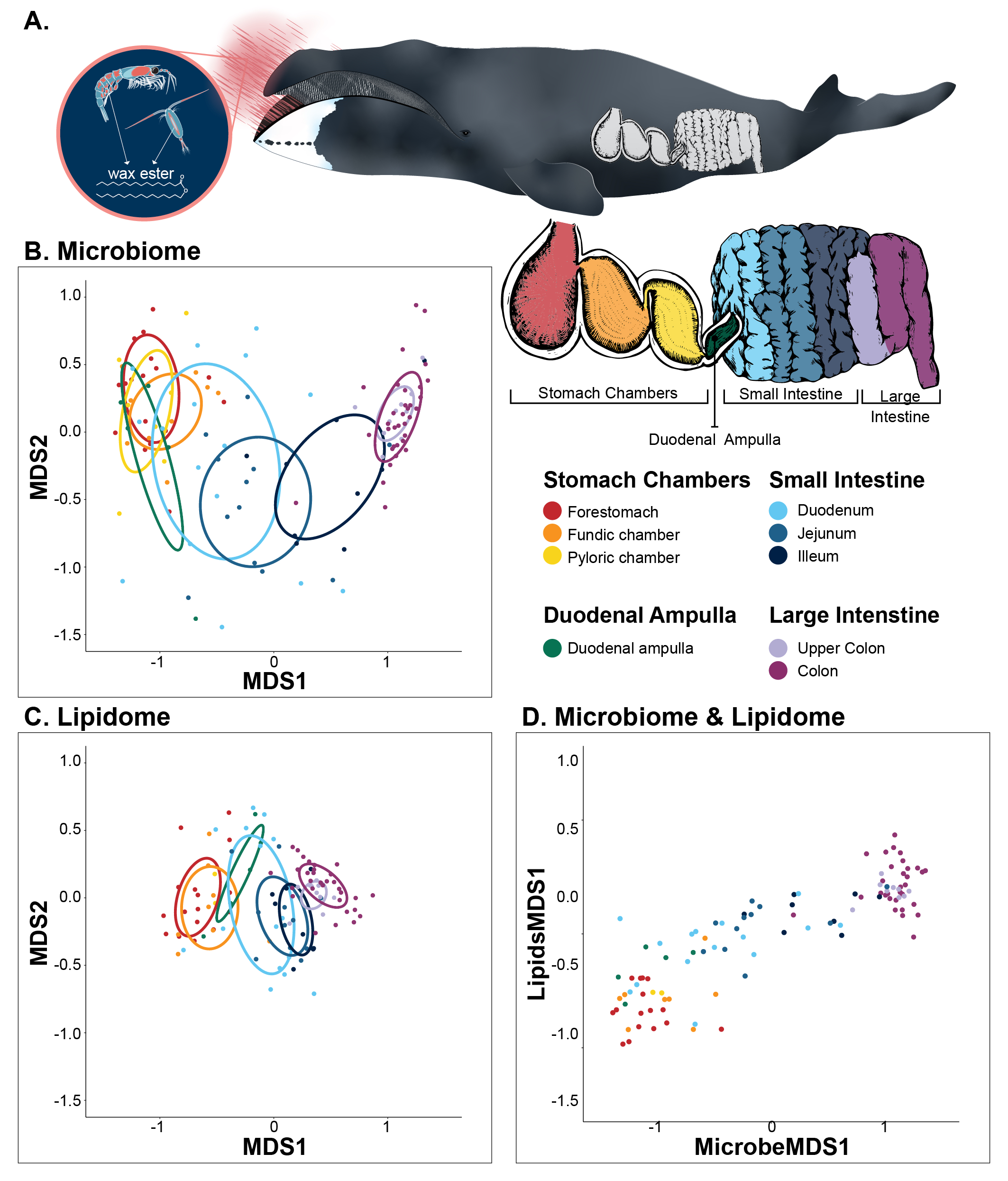Host and microbial contributions to wax ester lipid digestion in Arctic whales
Digestion and storage of lipids, the most energy containing of all macromolecules, are essential to the physiology (i.e. thermoregulation, growth and reproduction) of mammals. This process is well understood in animals ingesting glyceride-based lipids, but there is little knowledge of lipid digestion in marine animals who commonly ingest prey containing wax esters, or long chain fatty acids that are esterified to long-chain fatty alcohols Wax esters are ubiquitous in the ocean; over half of the ocean’s organic matter from primary production may at some point be converted into wax esters as it flows through the pelagic food web Yet, we still lack fundamental understanding of how wax esters are digested and used by marine animals. Understanding wax ester digestion in marine taxa is particularly important because climate change is impacting the marine food web, which is causing significant alterations in the distributions of prey and predators, and forcing the energetic demands of marine animals to new extremes. There is a critical need to develop a mechanistic understanding of wax esters digestion and absorption in marine animals while we still have access to populations at ‘baseline’, or operating at optimal physiologies, performing routine behaviors, and contributing to existing ocean processes.
This project brings together expertise in lipidomics, microbial ecology, whale physiology and genomics to focus on one of the best-suited systems for efficient wax ester digestion, the Arctic-dwelling bowhead whale. We propose to address the overarching question of: what are the host and microbial components involved in wax ester digestion in Arctic whales?
The specific aims of this proposal include:
- Determine the enzymatic potential for host-based digestion of wax esters.
- Ascertain the ability of gut-associated microbiotas to digest wax esters. Identify specific microorganisms and investigate their functional role in this process.
- Develop a conceptual model for wax esters digestion in whales, based on host contributions and microbial networks and interactions

